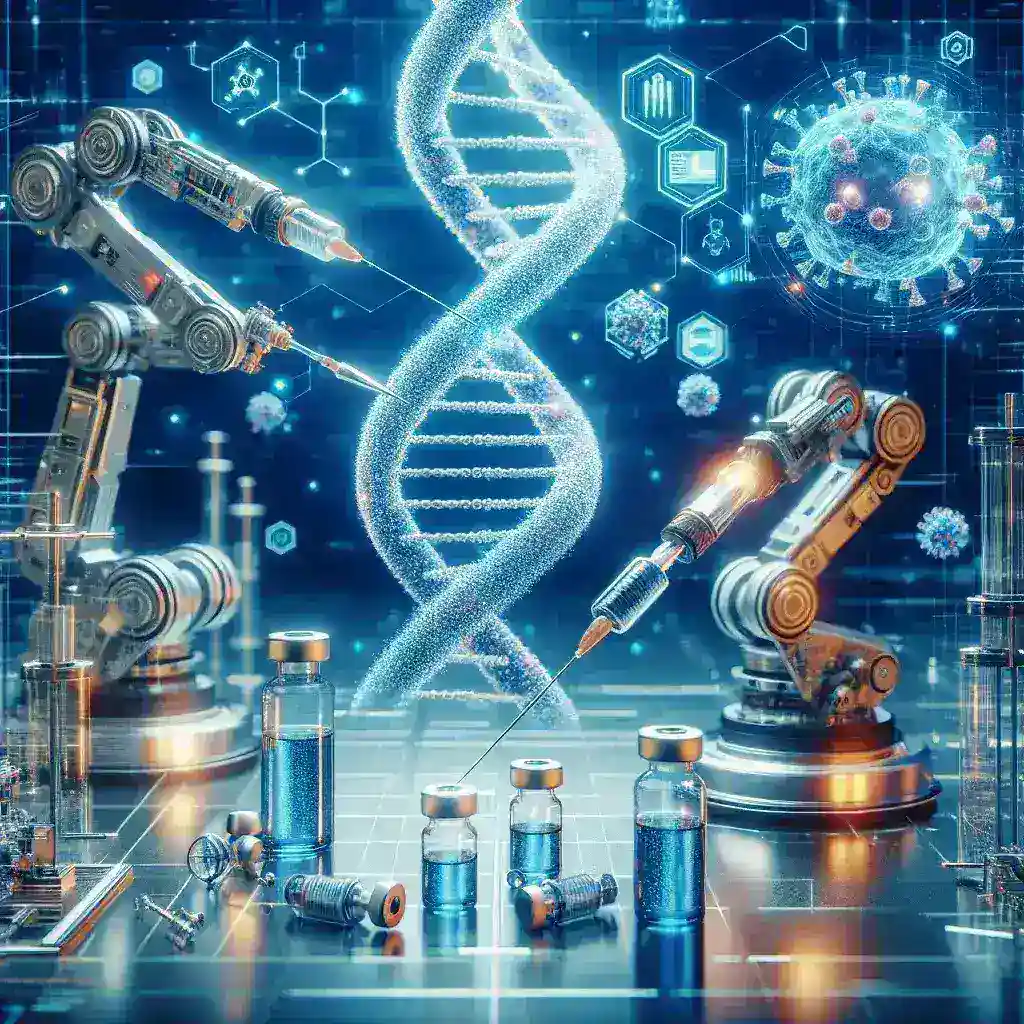Introduction
In recent years, the integration of artificial intelligence (AI) into the field of medicine has sparked a revolutionary shift, particularly in the realm of oncology. One of the most promising advancements is the development of personalized cancer vaccines through AI-powered gene editing tools. This article delves into how these technologies work, their potential impact on cancer treatment, and the future of personalized medicine.
Understanding Cancer and Vaccines
Cancer is often described as a complex group of diseases characterized by uncontrolled cell growth. The variability in cancer types and individual patient responses necessitates a tailored approach to treatment. Traditional vaccines stimulate the immune system to recognize and combat pathogens, while cancer vaccines aim to provoke an immune response specifically against tumor cells.
Historical Context
The concept of using vaccines in cancer therapy dates back to the 19th century, with early experiments demonstrating the potential of stimulating the immune system. However, significant breakthroughs have emerged only recently, thanks to advancements in gene editing and AI. The advent of CRISPR technology has paved the way for precise modifications of genetic material, enabling researchers to develop highly individualized vaccines.
AI-Powered Gene Editing: The Mechanism
At the heart of personalized cancer vaccines is the collaboration between AI and gene editing tools like CRISPR. AI algorithms analyze vast datasets, including genomic sequences, patient history, and treatment responses, to identify unique cancer signatures. These signatures help in designing specific vaccines tailored to target the biological markers of an individual’s tumor.
How AI Contributes
AI enhances the gene editing process in several key ways:
- Data Analysis: AI can quickly process and analyze complex datasets, identifying patterns that may be missed by human researchers.
- Predictive Modeling: Machine learning models can predict how a patient’s cancer will respond to various treatments, guiding the development of personalized therapies.
- Optimization: AI algorithms can optimize the gene editing process, ensuring higher precision and efficiency in creating the desired genetic alterations.
Development of Personalized Cancer Vaccines
The process of developing personalized cancer vaccines involves several critical steps:
1. Tumor Genomic Profiling
Initially, tumor samples are collected from patients to perform genomic profiling. This process identifies mutations and alterations in cancer cells that differentiate them from normal cells.
2. AI Analysis
AI algorithms analyze the genomic data to pinpoint specific neoantigens—unique proteins expressed by cancer cells. This identifies potential targets for the vaccine.
3. Vaccine Design
Once neoantigens are identified, researchers use gene editing tools to design a vaccine that instructs the immune system to recognize and attack these specific cancer cells.
4. Clinical Trials
The personalized vaccine undergoes rigorous testing in clinical trials to determine its safety and efficacy in stimulating an immune response against the cancer.
Benefits of AI-Powered Personalized Cancer Vaccines
The shift towards AI-powered personalized cancer vaccines offers numerous advantages:
- Targeted Treatment: Personalized vaccines are designed to target the unique characteristics of an individual’s cancer, improving the likelihood of effective treatment.
- Minimized Side Effects: By focusing the immune response specifically on cancer cells, personalized vaccines may reduce the risk of damage to healthy cells, thus minimizing side effects.
- Enhanced Immune Memory: These vaccines can potentially generate long-lasting immune memory, allowing the body to recognize and fight off cancer recurrence.
Challenges and Limitations
Despite the promise of AI-powered personalized cancer vaccines, several challenges must be addressed:
1. Cost and Accessibility
The development and production of personalized vaccines can be costly, making them less accessible to some patient populations. Efforts must be made to ensure equitable access to these treatments.
2. Regulatory Hurdles
As with any new medical technology, regulatory approval processes can be lengthy and complex, potentially delaying the availability of personalized vaccines.
3. Variability in Patient Response
Not all patients will respond similarly to personalized vaccines, necessitating ongoing research to understand the factors influencing treatment outcomes.
Future Predictions
Looking ahead, the future of AI-powered gene editing tools and personalized cancer vaccines appears bright:
- Increased Integration: As AI continues to evolve, its integration into oncology will deepen, leading to more sophisticated and effective treatment options.
- Broader Applications: The principles of personalized vaccines could extend to other diseases, particularly autoimmune disorders and infectious diseases.
- Collaborative Research: Collaborative efforts among researchers, clinicians, and technology developers will accelerate the pace of innovation in this field.
Conclusion
AI-powered gene editing tools are revolutionizing the development of personalized cancer vaccines, offering hope for more effective and targeted treatments. As research progresses and these technologies become more refined, they hold the potential to transform cancer therapy, providing patients with tailored solutions that enhance their chances of survival. The intersection of AI and medicine represents a new frontier in the fight against cancer, one that promises to make significant strides in improving patient outcomes.

